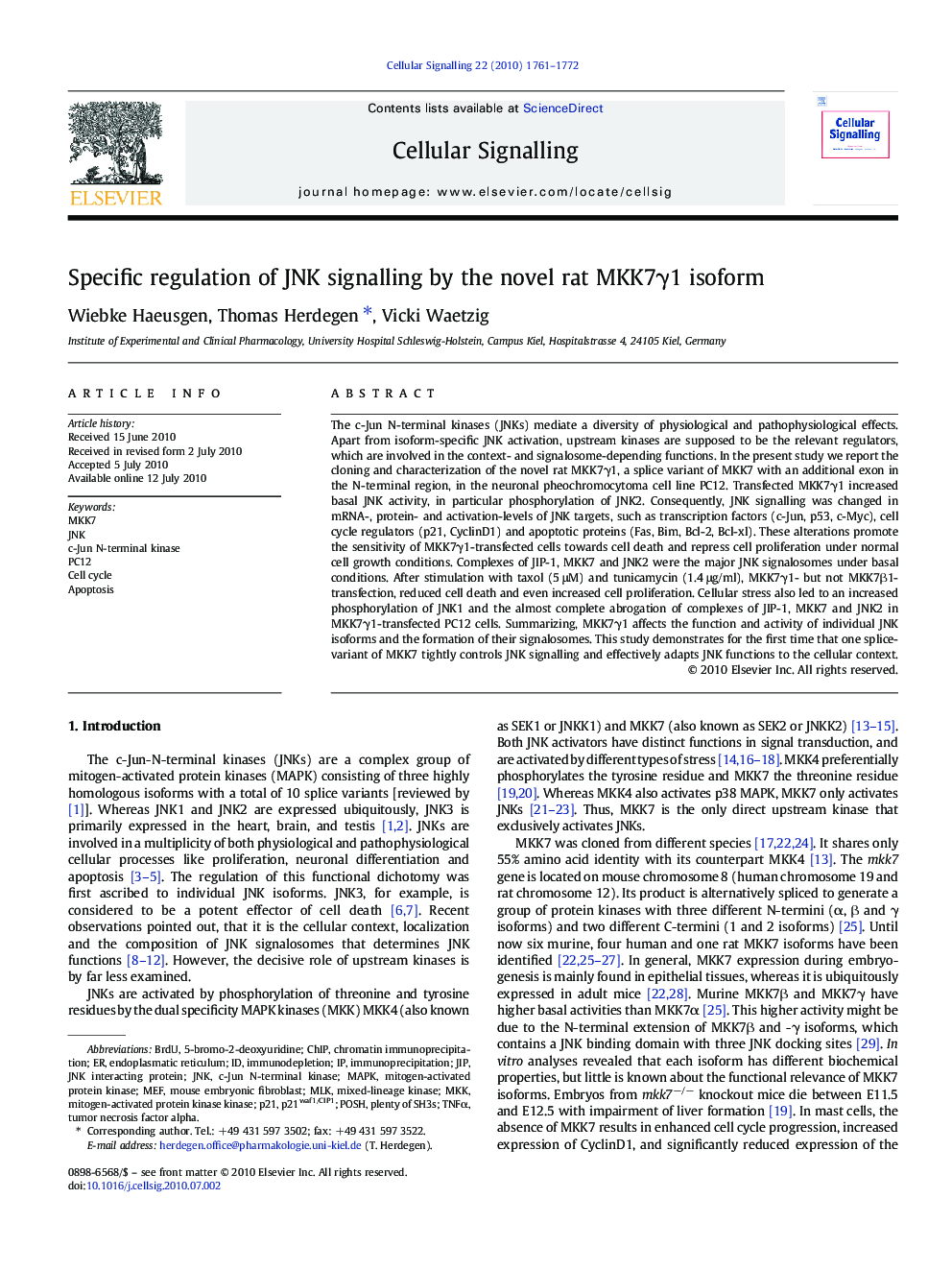| Article ID | Journal | Published Year | Pages | File Type |
|---|---|---|---|---|
| 1964805 | Cellular Signalling | 2010 | 12 Pages |
The c-Jun N-terminal kinases (JNKs) mediate a diversity of physiological and pathophysiological effects. Apart from isoform-specific JNK activation, upstream kinases are supposed to be the relevant regulators, which are involved in the context- and signalosome-depending functions. In the present study we report the cloning and characterization of the novel rat MKK7γ1, a splice variant of MKK7 with an additional exon in the N-terminal region, in the neuronal pheochromocytoma cell line PC12. Transfected MKK7γ1 increased basal JNK activity, in particular phosphorylation of JNK2. Consequently, JNK signalling was changed in mRNA-, protein- and activation-levels of JNK targets, such as transcription factors (c-Jun, p53, c-Myc), cell cycle regulators (p21, CyclinD1) and apoptotic proteins (Fas, Bim, Bcl-2, Bcl-xl). These alterations promote the sensitivity of MKK7γ1-transfected cells towards cell death and repress cell proliferation under normal cell growth conditions. Complexes of JIP-1, MKK7 and JNK2 were the major JNK signalosomes under basal conditions. After stimulation with taxol (5 μM) and tunicamycin (1.4 μg/ml), MKK7γ1- but not MKK7β1-transfection, reduced cell death and even increased cell proliferation. Cellular stress also led to an increased phosphorylation of JNK1 and the almost complete abrogation of complexes of JIP-1, MKK7 and JNK2 in MKK7γ1-transfected PC12 cells. Summarizing, MKK7γ1 affects the function and activity of individual JNK isoforms and the formation of their signalosomes. This study demonstrates for the first time that one splice-variant of MKK7 tightly controls JNK signalling and effectively adapts JNK functions to the cellular context.
